The Menopause is a topical subject when it comes to workplace health and wellbeing, and this is not going to change. While the Menopause can have an indirect impact on the majority of many people’s lives, the fact is that the Menopause directly affects ALL women, and the majority of women will very likely experience symptoms of some kind.
There are many reported symptoms associated with the Menopause, but the three most commonly reported symptoms are anxiety, brain fog, and fatigue. Symptoms (regardless of what they are) can be extremely debilitating, and what is important to understand is that symptoms experienced will be unique to the individual. Symptoms of the Menopause will often range from person to person, and will also be variable in presentation and severity.
Therefore it is very important to avoid using “common comparability’s”, and to ensure that any individual is seen as just that, an individual – and not as somebody with a label, or somebody who is simply “going through the Menopause”.
In terms of the treatment and management, there has been a lot of controversy and a lack of understanding about the Menopause, and about available treatments (to include Hormone Replacement Therapy (HRT)) amongst the public media, as well as amongst some health professionals, and this has not helped women to feel empowered and confident in approaching their manager’s or their GP’s to explain how they are feeling and that they are struggling.
It is common knowledge that female talent in the workplace contributes to a successful business, and by retaining female talent this:
- Promotes a more diverse and positive workforce
- Creates an organisation reflective of the population
- Retains staff with years of experience
Yet the Menopause is responsible for the loss of talent amongst women who are at the peak of their careers.
Reasons such as fear of being seen as incapable, embarrassment, being fobbed off, not feeling listened to, not feeling understood, expected to just get on with it “it’s just the Menopause – it’ll pass”, or “you’re depressed; take these anti-depressants and that’ll fix it” are common factors contributing to women not speaking up, and this needs to change.
Taking into consideration that women aged 50 plus are the fastest growing group in the UK workforce, not only is it morally correct, it also makes good business sense to have an open, positive, and supportive dialogue to promote awareness and understanding regarding the Menopause, and in empowering women to feel confident in speaking up, and in seeking help.
By promoting an open and supportive dialogue around this subject, and by adopting a supportive and proactive approach within your business, this will also ensure that you are meeting your moral, legal and ethical obligations towards your employees.
Some interesting facts:
- The average age for a women to start the Menopause is age 51
- The timing of the onset of the Menopause typically comes at crucial time in a woman’s life, and from a work perspective, this often involves progression and promotional opportunities where expectation and demand may be higher.
- The knock on effect for women experiencing symptoms of the Menopause can be rather propound and can have a negative impact upon them at work and at home, upon their family and friends, and upon women themselves.
- During the menopause, oestrogen and progesterone hormone levels dip.
- The transition phase before the menopause (peri-menopause) can last for up to 10 years and symptoms can be very debilitating – this is due to the production of variable levels of oestrogen and progesterone during this time, which in turn can be very frustrating, and confusing.
- Symptoms can be very different from one person to the next and they will vary in presentation and severity
- It can take between 6 and 12 months to get individual HRT dosages right
- The Equality Act 2010 may be applicable to some women in respect of debilitating impairments from associated symptoms of the Menopause.
In a recent 2022 survey, out of 4000 women who were experiencing symptoms of the Menopause, and who were at the peaks of their careers:
- only ½ went to see their GP
- out of those who did, only 10% were offered or commenced on HRT
- 59% took time off work due to the Menopause
- 18% of these women took more than 8 weeks off work
- 18% reduced their hours of work due to the Menopause
- 12% left their jobs due to the Menopause
Therefore it is crucial to your business to get it right when supporting women who are experiencing the effects of the Menopause.
At TJM Occupational Health and Wellbeing, we can:
- Provide relevant information and guidance that will allow HR personnel, leaders, managers, and supervisors to support employees at work
- Highlight the signs and symptoms of the effects of the Menopause
- Discuss the detriments to health, safety and wellbeing due to the effects of the Menopause
- Raise awareness regarding legislation highlighting both the employer’s and employee’s duty of care at work
- Discuss roles and responsibilities and how HR personnel, leaders, managers, and supervisors can help to empower women to speak up
- Educate HR personnel, leaders, managers, and supervisors in recognising signs and symptoms of the effects of the Menopause
- Enable managers to feel confident in initiating conversations with their employees
- Discuss and promote ways that will allow employees to better manage their symptoms, focusing on enablers and barriers – to include treatments, supplements, diet and exercise.
- Demonstrate how HR personnel, leaders, managers, and supervisors can empower employees to take control and feel confident in raising any issues of concern.
- Educate on when to refer onto Occupational Health
If you would like to arrange a discussion to see how we can assist you in prioritising your employee’s health and wellbeing, and in assisting HR Personnel, leaders, managers, and supervisors in expanding their knowledge base around the Menopause and how best to support individuals at work, then please do get in touch.


